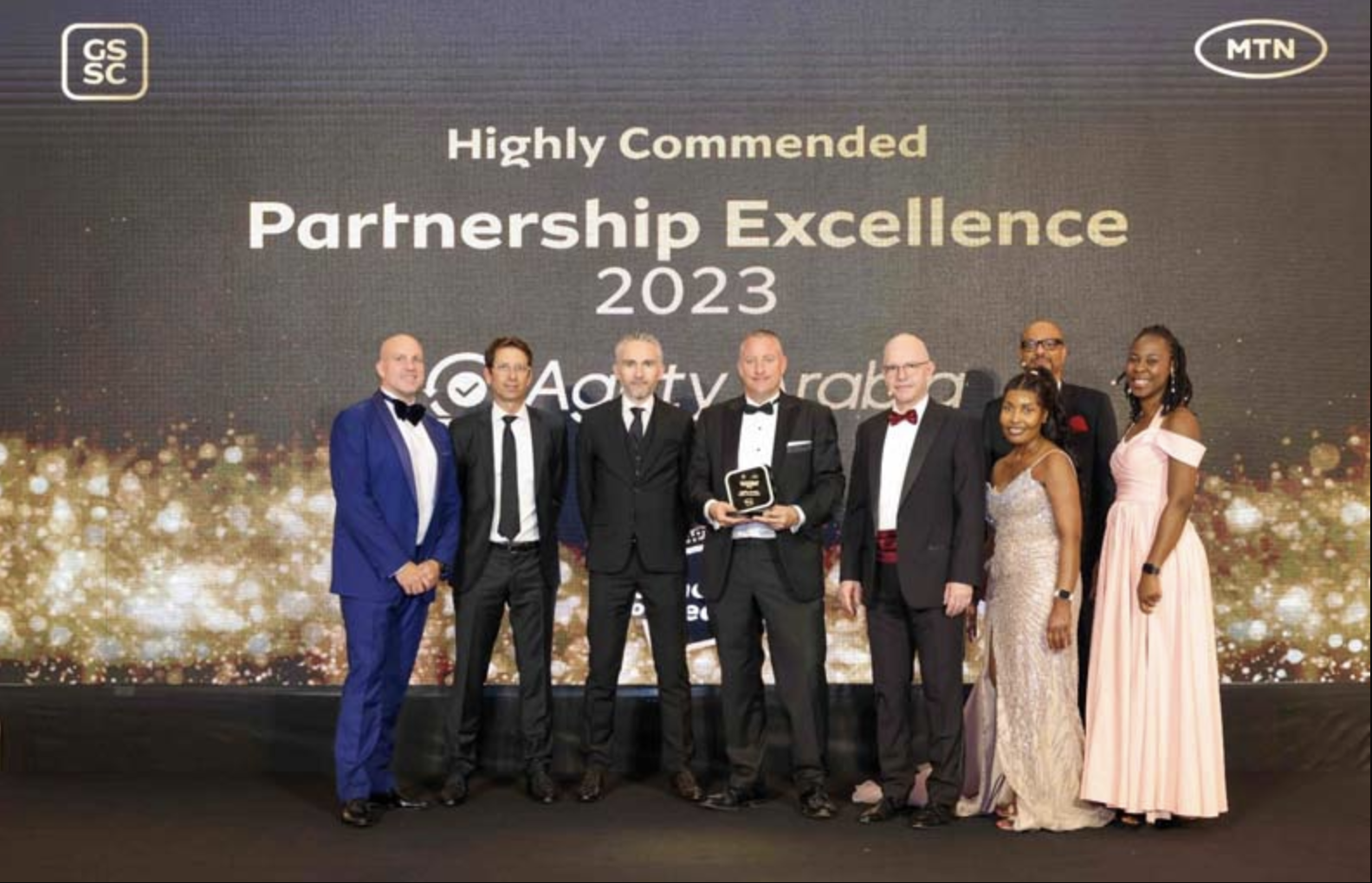Why Agile Fails in the Middle East – and How to Fix It
In the last decade, organisations across the Middle East — especially in the UAE and wider GCC — have adopted Agile as part of digital transformation. The intent is usually clear: faster delivery, better customer outcomes, and a more adaptive culture.
But many programmes stall. Teams feel busy without getting faster. Leaders feel unsure what “good” looks like. And the organisation ends up with the appearance of Agile rather than real improvements in flow and outcomes.
This article looks at why Agile fails in the Middle East and what to do differently — based on patterns we see repeatedly across UAE and MENA organisations.
Key takeaways
- Agile often fails when leadership expectations (fixed scope, fixed dates, approvals) don’t change.
- “Agile theatre” is common: events and roles exist, but decision-making and ownership don’t shift.
- Copy-pasting Scaled Agile without adapting to culture and governance increases complexity and slows delivery.
- Fixes start with leadership alignment, then team coaching, then systemic enablers (funding, HR, governance).
- Start with a clear baseline (team, function, or value stream) and a practical 30/60/90-day plan.
Challenge: why this matters in UAE/GCC environments
Agile is not a set of meetings. It’s a way of working that relies on:
- short feedback loops
- empowered teams with clear decision rights
- transparency on progress and risks
- a leadership posture focused on outcomes, not activity
In many Middle East organisations, delivery is shaped by real constraints: hierarchy, multiple stakeholders, vendor ecosystems, and risk-sensitive governance. If Agile is introduced without adapting to those realities, it quickly becomes Agile theatre.
Common “early warning” signals we hear:
- “We’ve been doing Agile for a year and it’s not faster.”
- “We have Scrum Masters, but everything still escalates.”
- “We run stand-ups, but decisions still take weeks.”
- “Leadership still expects fixed scope and timelines.”
If those are familiar, the issue is usually not the teams’ effort. It’s misalignment between ways of working and how the organisation actually makes decisions.
Approach: how it works when you fix the root causes (not the symptoms)
Below are the most common causes of Agile failure in the Middle East — and what a practical fix looks like.
1) Leadership expectations don’t change (so teams can’t change)
Many organisations retain centralised decision-making and approval-heavy governance, even after adopting Agile roles and events.
What this looks like:
- teams wait for approvals on priorities, scope, or solution choices
- leaders ask for certainty too early (detailed plans before learning)
- risk is managed through control rather than transparency and feedback
Practical fix:
- align leaders on decision rights and guardrails (what teams can decide vs what must be escalated)
- define outcome-based priorities and revisit them frequently
- coach leaders on how to inspect progress without micromanaging
2) No clarity on the “why” (so Agile becomes ritual)
If Agile is introduced as a process (boards, ceremonies, roles), teams comply — but the organisation doesn’t improve.
What this looks like:
- teams “do Scrum” but can’t explain what outcomes they’re optimising for
- success is measured by activity (events held, tickets closed), not value delivered
- people disengage because the purpose is unclear
Practical fix:
- translate Agile into a small set of outcomes (speed, predictability, quality, customer impact)
- use simple evidence measures to anchor discussions (e.g., lead time, throughput, predictability)
- make value explicit in backlogs and portfolios, not just delivery tasks
3) Capability gaps in Agile leadership and product ownership
Even where teams are motivated, leaders often haven’t been coached in Agile leadership. Product ownership is also frequently underpowered — unclear authority, unclear priorities, and too many stakeholders.
Practical fix:
- build leadership capability (outcome steering, empowerment, psychological safety, decision speed)
- strengthen product ownership (clear product goals, prioritisation, stakeholder management)
- introduce coaching support to embed behaviours over time (not a one-off training)
4) Vendor-led implementations that don’t fit local culture
Some transformations are rolled out with generic toolkits. The framework lands, but it doesn’t match how trust, hierarchy, and communication work in the organisation.
Practical fix:
- localise Agile to fit UAE/GCC realities while keeping core principles intact
- invest in facilitation that balances voices and creates safe, neutral working sessions
- align stakeholders early, especially in high-context environments where misalignment isn’t always visible in meetings
If you’re also navigating broader technology-driven change, it’s worth linking Agile and AI transformation as one agenda rather than separate initiatives:
5) Organisational systems stay traditional (so Agile hits a wall)
Agile teams cannot outperform the system they sit within. Typical blockers include:
- annual funding cycles that lock scope too early
- HR performance measures focused on individual output over team outcomes
- governance that rewards certainty over learning
- procurement and vendor management that slow down delivery
Practical fix:
- shift governance to outcome reviews and risk transparency (not only stage-gates)
- evolve PMO/portfolio practices to manage flow, dependencies, and prioritisation
- modernise procurement where it’s a delivery constraint (without bypassing compliance)
A real example of system-level procurement change at scale:
6) Copy-pasting “Scaled Agile” without adaptation
Scaled Agile approaches can help when applied thoughtfully. But when implemented wholesale, they can add layers, roles, and ceremonies without improving outcomes.
Common failure modes:
- role confusion and meeting overload
- “process compliance” becomes the goal
- teams spend more time coordinating than delivering
Practical fix:
- start from the value stream and delivery constraints, then add only the minimum scaffolding needed
- simplify decision-making and dependency management before adding more roles
- use a pilot-and-scale approach based on evidence, not ideology
Results: expected outcomes (careful wording, no hype)
When organisations tackle the real constraints (leadership, decision rights, and systems), typical improvements include:
- faster decision cycles and fewer late escalations
- improved delivery predictability (more of what is committed gets done)
- reduced rework due to clearer outcomes and earlier feedback
- better cross-functional collaboration (fewer hand-offs, clearer ownership)
- healthier delivery pace (less firefighting and “urgent” thrash)
The aim is not to “be Agile”. The aim is to improve outcomes that matter in UAE/GCC environments: speed, confidence, and value delivery.
Practical takeaways: what to do next
If you suspect Agile is stalling in your organisation, start with a practical sequence.
1) Diagnose the real constraints (team vs system)
Ask:
- is the constraint inside one team, between teams, or in governance?
- where do decisions slow down most?
- what causes the most rework?
If you want a structured baseline, start with an Agility Maturity Assessment to identify what’s working and what to fix first:
2) Align leadership on outcomes and decision rights
In one working session, clarify:
- top 3–5 outcomes to optimise (time to market, predictability, quality, customer impact)
- which decisions teams can make independently
- what requires escalation (and how fast escalation must happen)
3) Reduce work in progress and dependency overload
Practical steps that often help quickly:
- stop starting new work until key items finish
- limit WIP at team and portfolio levels
- establish a weekly cross-team dependency review (with real escalation authority)
4) Coach the system, not just the teams
Training is helpful, but behaviour change comes from embedded coaching:
- leadership coaching (outcome steering, empowerment, feedback culture)
- product ownership coaching (prioritisation, stakeholder management)
- team coaching (flow, quality, collaboration)
5) Run a 30/60/90-day plan with evidence measures
Keep measures simple and outcome-led, for example:
- lead time / cycle time
- predictability
- ageing work / blocked work
- stakeholder confidence pulse
Conclusion
Agile fails in the Middle East most often when organisations adopt the form of Agile without changing the conditions required for agility: decision rights, leadership behaviours, and enabling systems.
The fix is practical and staged:
- align leadership on outcomes and empowerment
- coach teams and leaders side-by-side
- adjust governance, funding, and supporting functions so teams can actually move
Done well, Agile becomes a delivery advantage — not another transformation cost.
Contact us
If your organisation is “doing Agile” but not seeing better outcomes, we can help you identify the real constraints and define a practical starting point (pilot scope + 30/60/90-day plan).
Contact us to book a 30-minute discovery call. We’ll recommend a realistic next step aligned to your governance and culture.





